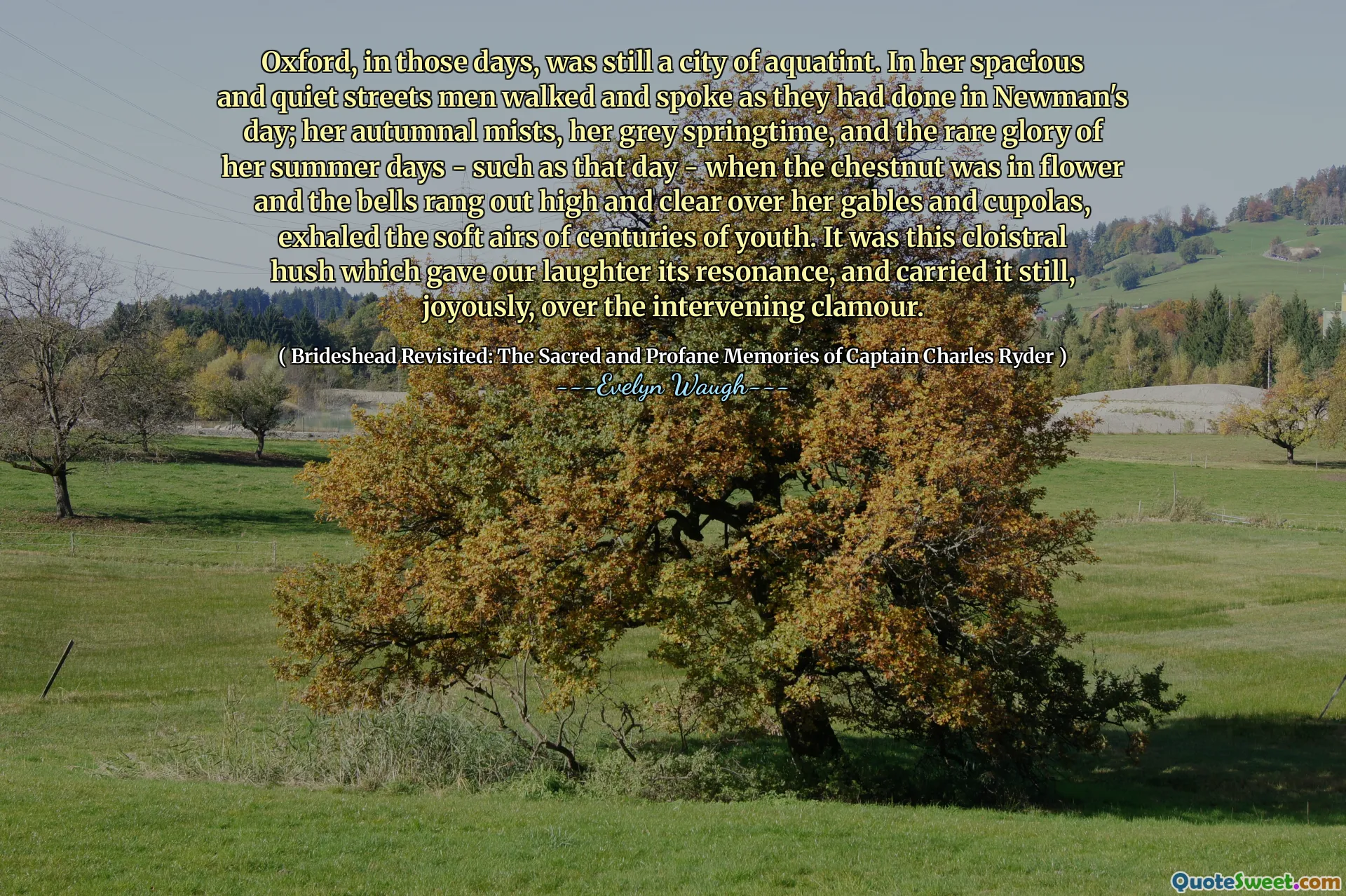
Oxford, in those days, was still a city of aquatint. In her spacious and quiet streets men walked and spoke as they had done in Newman's day; her autumnal mists, her grey springtime, and the rare glory of her summer days - such as that day - when the chestnut was in flower and the bells rang out high and clear over her gables and cupolas, exhaled the soft airs of centuries of youth. It was this cloistral hush which gave our laughter its resonance, and carried it still, joyously, over the intervening clamour.
This excerpt beautifully evokes a nostalgic reverie of Oxford's past, capturing the timeless essence of the city. The vivid imagery painted with phrases like 'city of aquatint' evokes a textured, almost artistic portrayal of the cityscape, hinting at both its historic charm and delicate beauty. Descriptions of quiet, spacious streets alongside references to seasonal shifts—autumn mists, grey springs, glorious summers—bring the setting to life, emphasizing the cyclical nature of time and memory. The mention of the chestnut in blossom and the ringing bells evoke a sense of ritual and tradition, grounding the reader in the unique atmosphere of Oxford as a place deeply intertwined with history, learning, and quiet reflection. There is a palpable sense of cloistered tranquility, a sacred hush that seems centered around the city's spiritual and intellectual essence. This silence amplifies our laughter, making it resonate across generations, and suggests that the city's spirit is preserved in these muted, gentle moments of harmony. What strikes me most is how the author captures the feeling of a place that exists both in the physical present and in the collective memories of all who have walked its streets. The phrase 'exhaled the soft airs of centuries of youth' beautifully encapsulates the idea that Oxford's youthful vigor and scholarly traditions breathe through its air, never fully aging but perpetually rejuvenated by history's gentle embrace. It's a reminder of how places steeped in history maintain a unique, almost mystical vitality—an eternal echo of the lives and laughter that have inhabited them, enriching the present while being cradled in the arms of the past.







